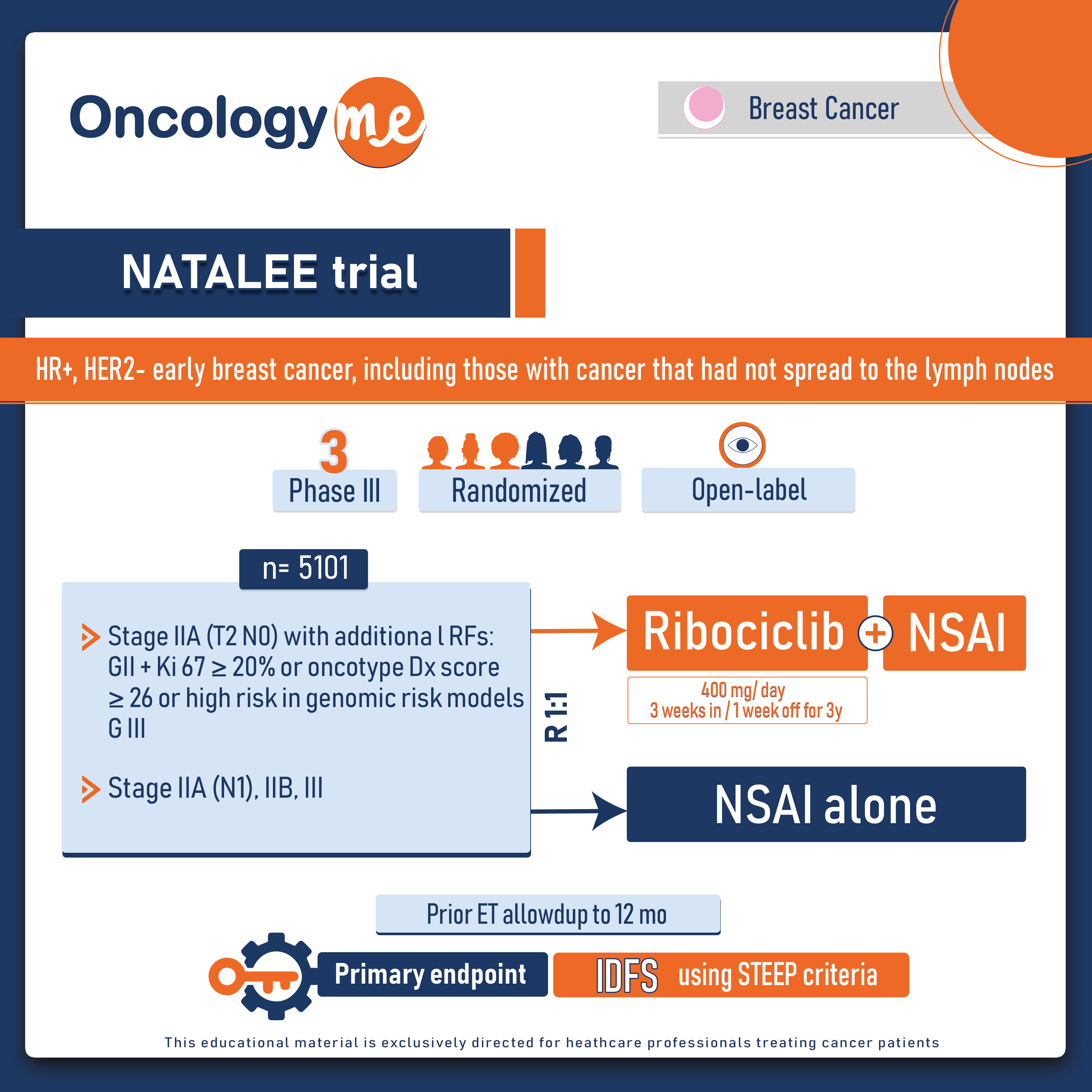Based on the result of phase III NATALEE trial, Adding #ribociclib to hormonal therapy showed a significant improvement in iDFS for a diverse group of of patients with HR-positive, HER2-negative early #breast cancer, including those with cancer that had not spread to the lymph nodes.
In this multicenter, randomized, open-label trial, 5101 patients with stage IIA (either N0 with additional risk factors or 1-3 axillary lymph nodes [N1]), IIB, or III HR-positive, HER2-negative breast cancer at risk for recurrence were randomly assigned to receive either 400 mg of adjuvant ribociclib for 3 years with hormonal therapy for at least 5 years (2,549 patients) or hormonal therapy alone for at least 5 years (2,552 patients). Men and premenopausal women also received goserelin (Zoladex), an ovarian suppression drug. Prior hormonal therapy use was allowed if it was initiated no more than 1 year before the start of the study.
At a median follow-up of 34 months, 20.2% of participants in the ribociclib group had completed 3 years of treatment and 56.8% had completed 2 years of treatment. Adding ribociclib to hormonal therapy led to a significant improvement in iDFS. The 3-year iDFS rates were 90.4% in the ribociclib group compared with 87.1% in the hormonal therapy alone group. Moreover, the addition of ribociclib reduced the risk for recurrence by 25%. The 3-year rate of invasive disease–free survival was 90.4% with ribociclib vs 87.1% with hormonal therapy alone.
Natalee stands out from other studies investigating cdk4/6 inhibitors in the adjuvant settings. Firstly, it included a wider range of patients, including those with stage II and III early-stage breast cancer, even those without nodal involvement. Secondly, the study administered a lower dose of ribociclib at 400 mg, whereas the approved dosage for metastatic disease is 600 mg per day for three weeks, followed by a week off per cycle. Thirdly, Natalee involved a treatment duration of three years with ribociclib for the patients which is rather longer than other CDK4/6i trials. However, that was crucial to prolong cell cycle arrest and drive more tumor cells into senescence or death."

.png)